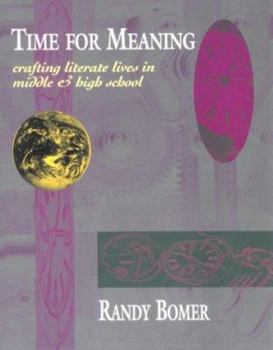Time for Meaning: Crafting Literate Lives in Middle & High School
Time for Meaning is both thoughtful and practical. It confronts the realities of today's classrooms: overcrowded curriculums, unfriendly colleagues, choppy schedules, and resistant learners. Bomer suggests ways to transform these obstacles into opportunities to rethink the true purpose, meaning, and design of literacy education. He offers guidelines for: helping students choose topics that are important to them- so important that they'll have the energy to work through the writing process prompting initial responses to literature and moving toward polished pieces of writing using writing as a tool for thinking and inquiring--an essential habit of mind for students to develop understanding what makes for poor student research writing and how to improve it planning curriculums that focus on story in fiction and memoir. Since time is so often the crucial issue in teaching, Bomer asks you to examine your attitudes toward time and the way you use it. He writes, "What we do with time is what we do with our lives. When we are 'unable' to spend time on what we most value, it is because we have not found a clarity of purpose. We have lost our maps, lost our rudder, and we drift aimlessly, as if time were not passing, as if this teaching life were not ours to live."
Bomer is specific and persuasive without being prescriptive. Time for Meaning is a snapshot of his current thinking, a report on work that has already benefited many teachers. It speaks as powerfully to experienced reading/writing process teachers as it does to newcomers.





